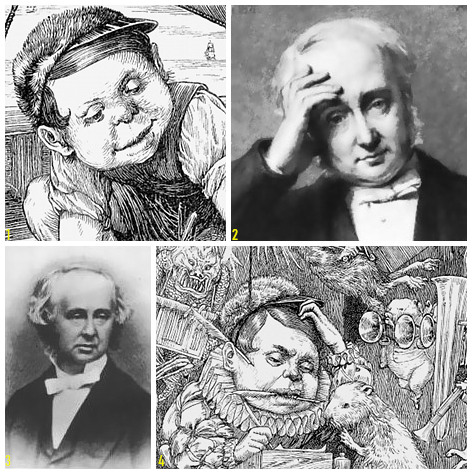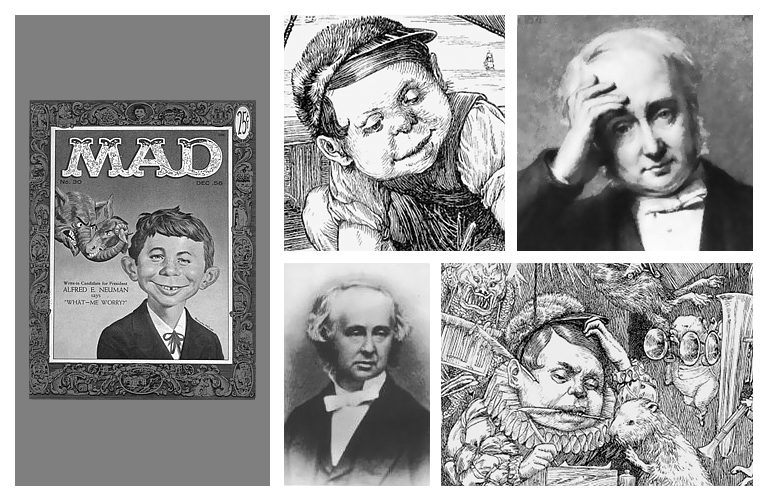en.wikipedia.org/wiki/Jabberwocky#Reception:
[…] [Jabberwocky] has also been interpreted as a parody of contemporary Oxford scholarship and specifically the story of how Benjamin Jowett, the notoriously agnostic Professor of Greek at Oxford, and Master of Balliol, came to sign the Thirty-Nine Articles, as an Anglican statement of faith, to save his job. […]
Stephen Prickett (2005): Victorian Fantasy, Baylor University Press, p. 113, ISBN 1-932792-30-9
Unlike Benjamin Jowett, the Rev. Dodgson (aka Lewis Carroll) didn’t sign, but managed to save his job nevertheless without being ordained as a priest. (I am not so sure about the Jowett link, because «the first stanza of “Jabberwocky” was originally written by Carroll at the age of 13 under the title “Stanza of Anglo-Saxon poetry”.» [Darien Graham-Smith, p. 36])
’Twas brillig, and the slithy toves
Did gyre and gimble in the wabe;
All mimsy were the borogoves,
And the mome raths outgrabe.“Beware the Jabberwock, my son!
The jaws that bite, the claws that catch!
Beware the Jubjub bird, and shun
The frumious Bandersnatch!”He took his vorpal sword in hand:
Long time the manxome foe he sought—
So rested he by the Tumtum tree,
And stood awhile in thought.And as in uffish thought he stood,
The Jabberwock, with eyes of flame,
Came whiffling through the tulgey wood,
And burbled as it came!One, two! One, two! and through and through
The vorpal blade went snicker-snack!
He left it dead, and with its head
He went galumphing back.“And hast thou slain the Jabberwock?
Come to my arms, my beamish boy!
O frabjous day! Callooh! Callay!”
He chortled in his joy.’Twas brillig, and the slithy toves
Did gyre and gimble in the wabe;
All mimsy were the borogoves,
And the mome raths outgrabe.
See also:
※ https://poemanalysis.com/lewis-carroll/jabberwocky
※ Vogon poetry
※ Chamutal Noimann, Empowering Nonsense: Reading Lewis Carroll’s “Jabberwocky” in a Basic Writing Class (2014)
※ Etching of Saint George and the Dragon by Paolo Uccello (c. 1470). But there also are other inspiring sources:
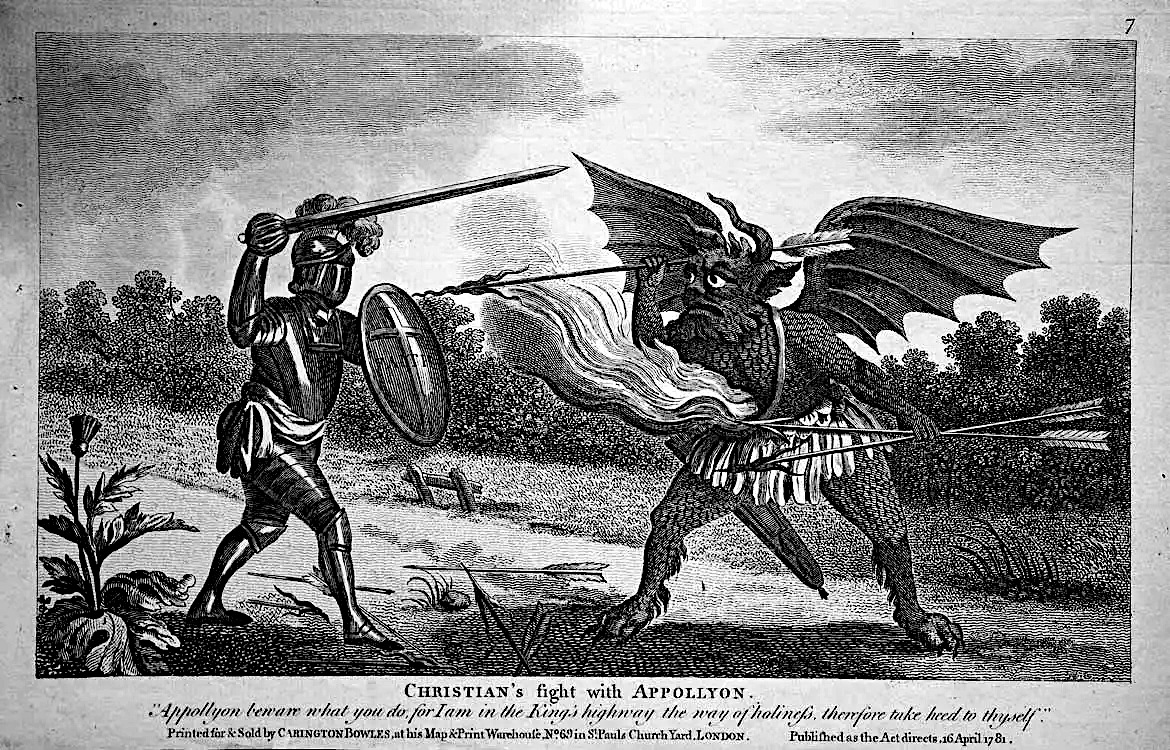 Christian’s fight with Appollyon in John Bunyan’s Pilgrim’s Progress,
Christian’s fight with Appollyon in John Bunyan’s Pilgrim’s Progress,
London: Carington Bowles, 1781.
(Source: John Bunyan Society)
Games (unfortunately not available anymore from the app shop):
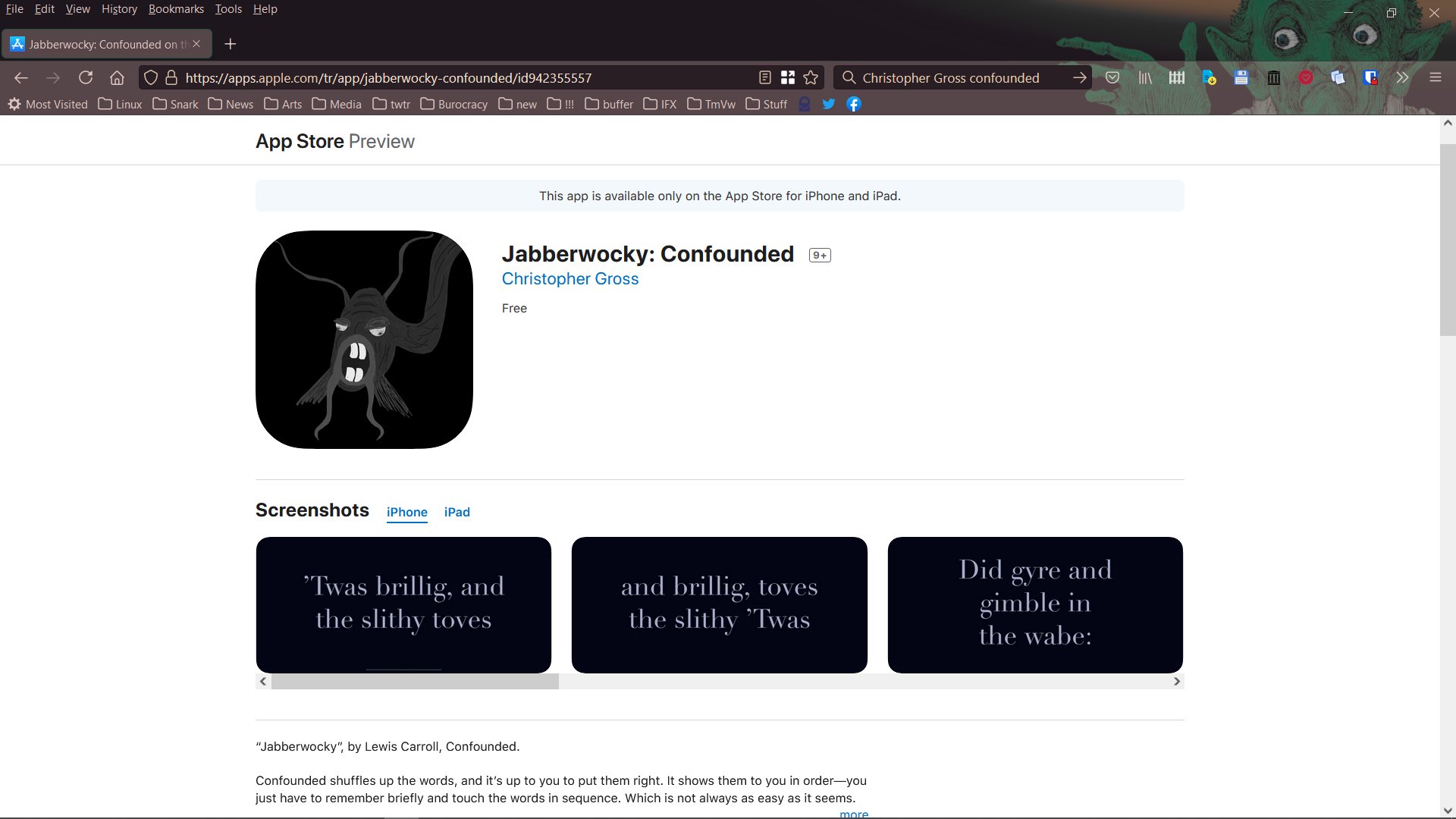 Jabberwocky, Confounded, app for iOS by Christopher Gross
Jabberwocky, Confounded, app for iOS by Christopher Gross
Music:
composer: Zoë Tweed, rendition: Sylva Winds
(flute: Yi-Hsuan Chen, bassoon: Guylaine Eckersley, oboe & voice: Drake Gritton,
clarinet: Rowan Jones, french horn: Zoë Tweed)
composer: Ben Ponniah, rendition: Peter Noden
Sometimes mediocre and sometimes pretty great, it’s always noisy in my car. Happy Thanksgiving! With apologies to Nancy Cartwright and Yeardley Smith. And of course to Lewis Carroll. pic.twitter.com/vVIoP96PDe
— Jill Watson (@pie4jill) November 25, 2022
2018-04-06, update: 2024-03-02

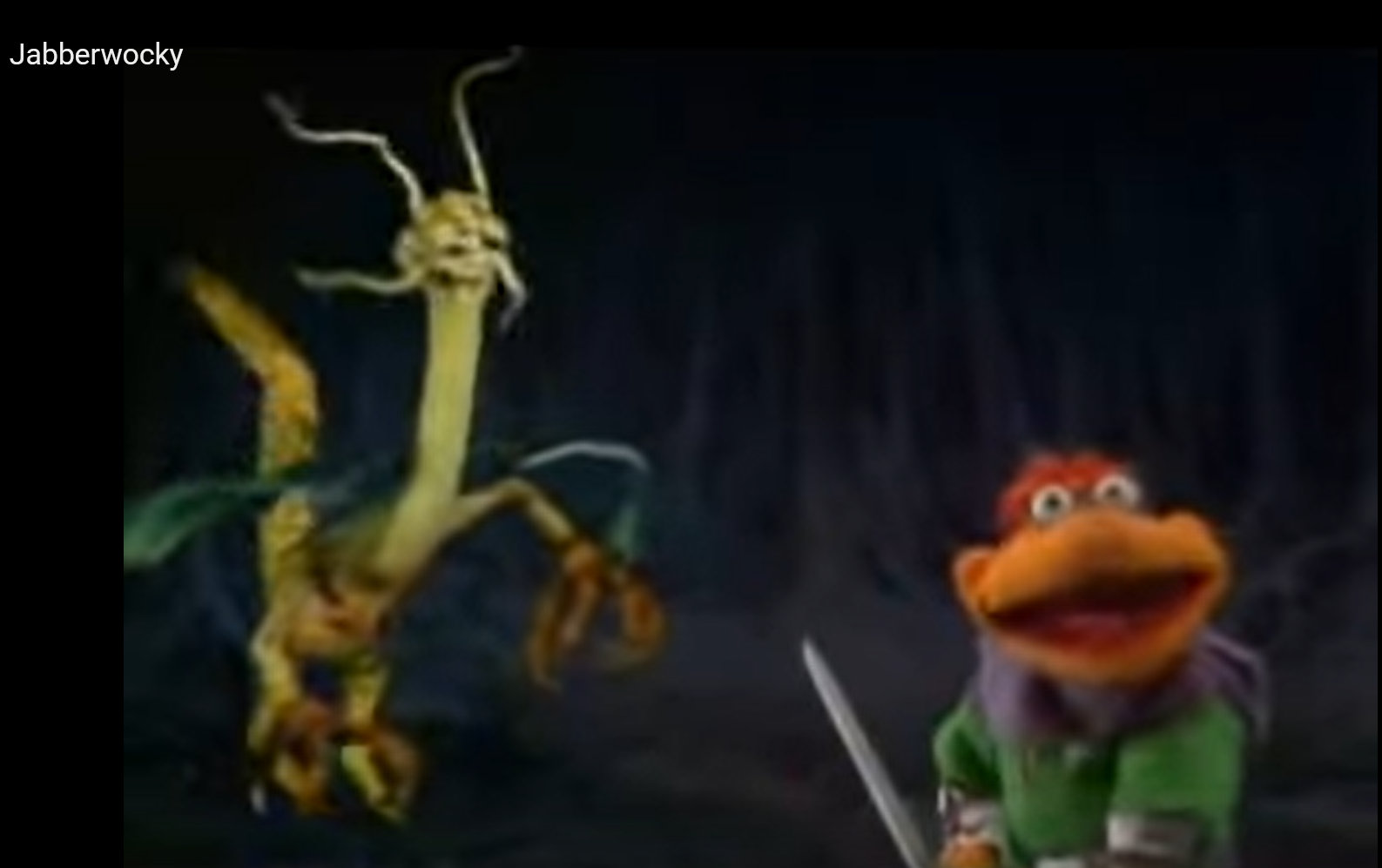 Muppets
Muppets